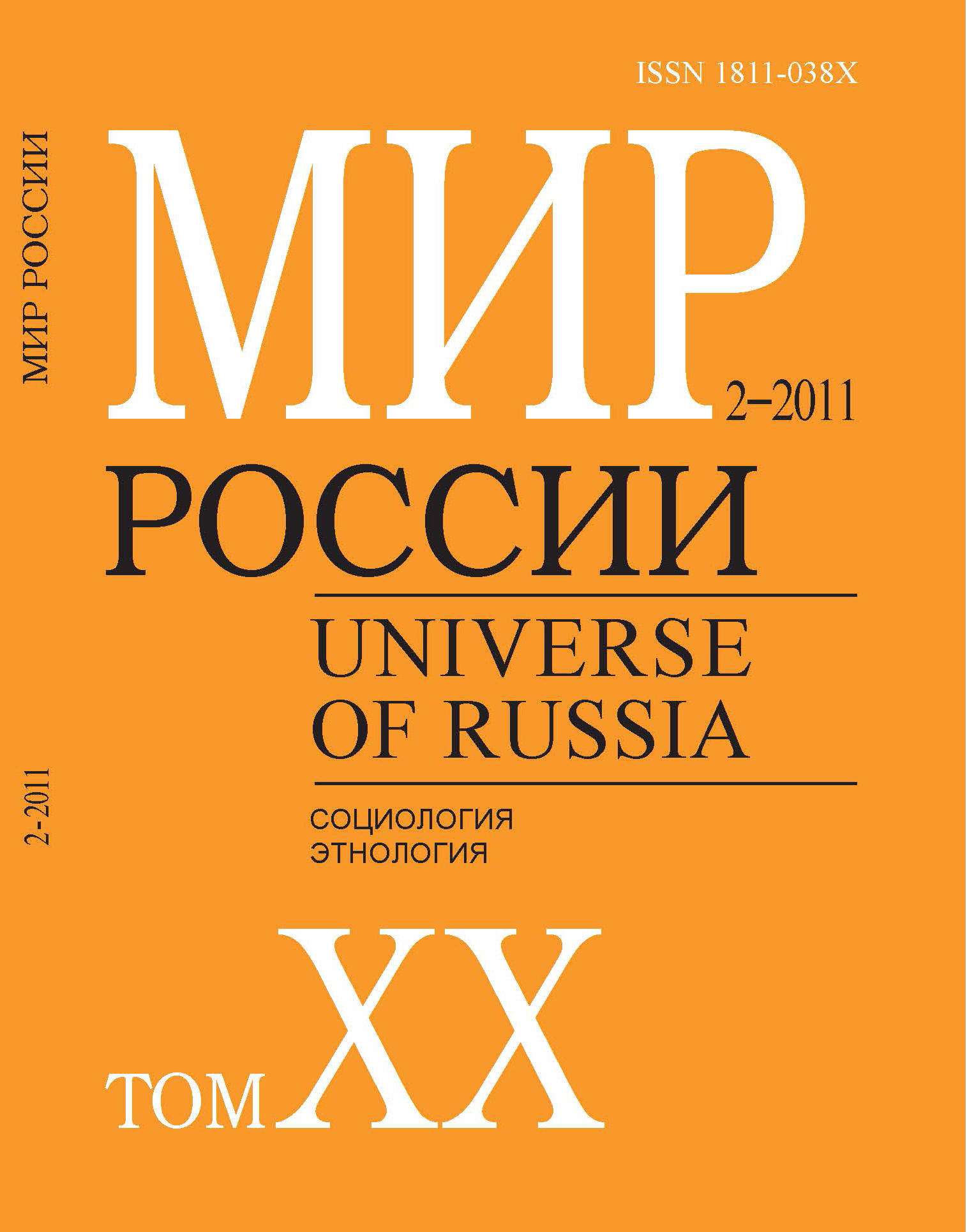The Liberal’s Mission: What is it?
Abstract
This article is a reflection of the eponymous ‘round table discussion 1’, which took place at the Liberal Mission Foundation in the end of 2010. It was timed to coincide with the dates of passing of two famous Russian liberals — Timofey Granovskiy (1813-1855) and Sergey Mouromtsev (1850-1910). By remembering these outstanding historical figures, the participants of discussion tried to outline the liberal’s mission today: what should it be and how must it be expressed? What does it have in common and how is it different from liberals’ missions in previous historical ages? How could this previous experience prove useful today?
The author suggests that the liberal’s mission today is to provide one’s own solutions to the problems that Russia faces. The major problem, however, is the archaic state system and its inability to provide development for the country. Thus, an alternative to this system has to be put forward, but no such alternative has been suggested yet. It has not been developed at an intellectual and expert level, which is why it looks rather vague and uncertain in political programs and declarations.
There are constant calls to economic and political competition, honest elections, independent justice and mass media. However, there is no doubt that even in such a unreal situation, when liberals somehow seize power, they will not know what to do with it. There are serious reasons to suggest that the archaic system will not change, it would only lead to the respective change within the elites.
To replace personal power with the power of democratic and legal institutions, we have to have a better idea of how the latter actually work. There are various civilization standards for these, usually referred to as European. However, in Russia they have not yet been appropriately introduced to the public. How precisely should the system of justice work? How should the state apparatus be organized? How can corruption be reduced? There are simply no answers to such questions.
The Russian culture, including its liberal segment, has an inherent feature of institutional carelessness. In his own years the famous monarchist, Lev Tikhomirov, wrote that the weakness of the Russian autocracy is because none has ever thought about how it actually works. The Bolsheviks, who replaced the Tsars, only thought about power rather than the institutional setup. As a result, a new version of autocracy emerged. The same way was followed by the Russian democrats, who brought Yeltsin rather than creating institutions that make democracy a democracy. The results are well known today. But what has been suggested to help things change? Nothing, as far as we know, apart from replacing ‘bad’ Putin with ‘good’ Medvedev.
It looks like foreign, not to mention our own, experience means absolutely nothing to us. When considering the emergence of democratic and legal institutions in post-communist Eastern Europe, it is commonly concluded that ‘their experience is different from ours’. However, the experience of institutional creationism in Eastern Europe is universal, not local. It is universal in the sense that it represents the gradual (5-7 years) movement towards European civilization standards. If this experience is not for Russia, then the most appropriate would be another ‘particular way’ to some other ‘particular goal’.
There is, of course, a problem of adapting universal standards to a particular country. This problem, however, is all about the adaptation of standards and not their imitation by masking the Russian archaic specifics with some universal European outlook. Specifics are primary to the standards in Russia, which leads to the deformation of the latter rather than adaptation. For example, the current Russian constitution bears a French model. However, this model has been re-edited in such a way that it has become a legal arrangement of a renewed version of Russian autocracy or, in other terms, its ‘particular way’.
The reformers of the 1990s and their supporters usually claim that under the given circumstances, everything was done to bring the country to a better state. Such self-evaluation is possible, but it lacks intellectual and political actuality. The liberals have to consider their actual deeds as well as failures. They have to consider the problems that are still unsolved. For example, the crucial problem of separating power from property has not been solved. Political competition also failed: while parliamentary elections were not controlled by the Kremlin, it was absolutely not the case with the presidential elections.






